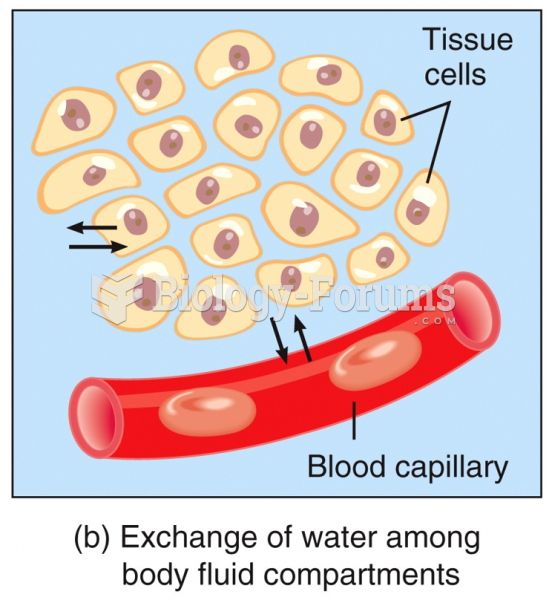|
|
|
Fatal fungal infections may be able to resist newer antifungal drugs. Globally, fungal infections are often fatal due to the lack of access to multiple antifungals, which may be required to be utilized in combination. Single antifungals may not be enough to stop a fungal infection from causing the death of a patient.
Signs and symptoms of a drug overdose include losing consciousness, fever or sweating, breathing problems, abnormal pulse, and changes in skin color.
The heart is located in the center of the chest, with part of it tipped slightly so that it taps against the left side of the chest.
After a vasectomy, it takes about 12 ejaculations to clear out sperm that were already beyond the blocked area.
Carbamazepine can interfere with the results of home pregnancy tests. If you are taking carbamazepine, do not try to test for pregnancy at home.
 Common skin signs are often evidence of an illness or disorder. A macule is a discolored spot on the ...
Common skin signs are often evidence of an illness or disorder. A macule is a discolored spot on the ...
 Adults in the Berlin Study of Aging show earlier declines on tests of nonverbal, fluid tasks (upper ...
Adults in the Berlin Study of Aging show earlier declines on tests of nonverbal, fluid tasks (upper ...





